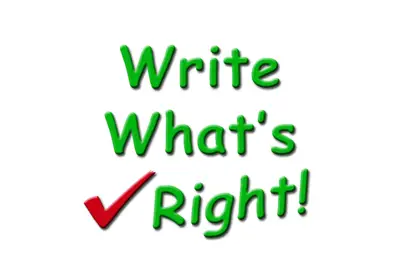Claims of Ethanol Wrongs Always Make Me Write
 |
Writing about wrongs brings holiday cheer
By Marc J. Rauch
Author of "The Ethanol Papers"
Exec. Vice President/Co-Publisher
THE AUTO CHANNEL
 Marc Rauch |
The editorial is titled "More Ethanol? Two Wrongs Don’t Make Good Policy". In it, Professor Levin attacks ethanol fuel on several fronts, ranging from environmental issues to health issues to issues touching on refinery exemptions and corn prices.
Knowing what I know about ethanol fuel, I didn't find the incorrect comments to be especially egregious or daunting, but I was curious as to how Levin arrived at these claims and why he chose to present them. I began the unraveling as I often do, with an online search.
Sure enough, Professor Stanford L. Levin does have some impressive academic and professional credentials. One resource I rely on for searches is ResearchGate.net. Research Gate lists 25 different papers that Levin has authored or co-authored...bravo Stan Levin!
Unfortunately, from the perspective of his editorial's veracity, he appears to have absolutely no experience or knowledge of the technical and mechanical aspects of his complaint, and extremely little ability to address the relevant economic aspects. All 25 papers were on the subject of television and communications. Additional online searches confirmed that Professor Levin's forte is in electronic communications. For example, one full book he co-authored in 1998 is "Telecommunications Transformation: Technology, Strategy and Policy." Another book, a short one from 1985 written by Professor Levin, is "A Strategy For The Devolution Of Electricity Generation."
Discovering Stanford Levin's background rang a lot of bells; alarm bells. I mean, how do you go from pontificating about television, telecommunications, and the Federal Communications Commission to being an expert on internal combustion engine fuels? Why do I say that he's presenting engine fuel information as an expert? Because of how the St. Louis Post-Dispatch gives us Stanford Levin, as a university professor who has widely consulted and published on "...energy issues."
Let me be fair; is it possible for someone in one field to become expert in another field? Absolutely it is, particularly if the person is someone who is familiar with the process of becoming knowledgeable and fluent about a subject. In other words, if the person knows how to research information, knows how to conduct hands-on trials and tests, knows how to investigate and interview other persons deemed to be scholars on the subject - as we might all expect a university professor to know - then yes, of course Stanford L. Levin could have become an expert on internal combustion engine fuels.
Except, those darn alarm bells are still ringing in my head. You see, in Levin's entire editorial he never offers any resources or references from where his information comes from. There's no links, no citations, no back-up. This is very un-professorial.
Reviewing Levin's 1998 book, he and his co-author devoted a great deal of space to providing the resources and citations that they used to write the book; so clearly he knows the importance of including back-up documentation. Then why are there no searchable references in the editorial, no external links to other websites, and no attributable quotes. And the St. Louis Post-Dispatch provides no related links or references on the webpage itself that could support the claims made by Professor Levin. There is only his naked words as if he is some kind of unassailable fount of knowledge. What was the newspaper thinking when they published this editorial? What was Stanford Levin thinking when he submitted the editorial to the newspaper?
Alright, let me get to the important part of my reply to Professor Levin, the debunking of his fatuous claims.
I'll start with what should be Levin's greatest strength (economics), he draws a connection between Trump's tariffs disagreement with China and the decision to allow year-round use of E15 as a way to
boost revenue to farmers. However, if Trump's decision was just to help farmers, then why would he allow so many refinery exemptions that have hurt farmers? In addition, increased ethanol usage does not increase
either corn prices nor gasoline prices. Corn prices should stay the same or lower, and gasoline prices should also be lower because the cost of ethanol is lower than gasoline (and the cost of the blend is therefore
lower than E0). The stimulus that might make corn prices go dramatically higher is commodity speculation, which has occurred in the past, but this is outside the norm of supply vs. demand economics. Incidentally,
the current price of corn is at or around the lowest prices it's been at since 2006, when the Renewable Fuel Standard kicked off. The use of ethanol today is much higher than it was 10, 12, 14 years ago.
• SEE: https://www.indexmundi.com/commodities/?commodity=corn&months=240
• SEE: https://www.eia.gov/todayinenergy/detail.php?id=32152
Regarding technical, health and environment issues, Levin wrote:
-
"Boosting the amount of ethanol in gasoline is also bad for the environment. Corn production is energy intensive, and ethanol must be transported by truck. Ethanol contains less energy per gallon than does oil,
so more fuel is used, resulting in higher emissions. When burned, ethanol — more so than oil — reacts with sunlight to produce smog that endangers the health of everyone, especially people with lung ailments
and asthma."
In reality, the energy content of ethanol compared to gasoline is irrelevant, and there is no way that ethanol can make gasoline and diesel fuel dirtier.
• SEE: My report on energy content - The Irrelevance Of BTU Rating
Professor Levin has the EROEI situation reversed. Corn ethanol is energy positive, gasoline is energy negative.
• SEE: USDA Report on Energy Balance.
Yes, ethanol is transported by trucks, so what? Gasoline is also transported by trucks, trains and boats - which is all part of how oil and gasoline disasters occur.
• SEE: Rolling Oil and Gasoline Bombs.
There are no health risks to greater ethanol use, there are only health benefits. Ethanol is far cleaner than gasoline and diesel, in all ways. There are convoluted attempts to claim that ethanol causes more pollution,
but all serious studies - and practical demonstrations - prove ethanol is cleaner. For example:
• SEE: Recent USDA Study.
• SEE: Recent DOE report
• SEE: This practical demonstration -
Moreover, in all the years that E85 has been used in America, there are no studies that show any increased health problems from E85. In Brazil, where E27 is the mandated minimum fuel, there have been no studies linking increased use of ethanol to health risks. Brazil has mandated E15 or higher since 1978.
In America, there are no ethanol subsidies, but there are plenty of petroleum oil related subsidies that we pay for, and have done so for more than 100 years. We also have no ethanol mandate; we have a biofuel mandate. The oil industry could use something other than ethanol if they could find something that is cleaner, safer, cheaper, and healthier than ethanol...they can't.
Regarding Levin's comments about corn prices, and his insinuation that corn prices have negatively impacted the price and availability of food (in America and elsewhere), corn ethanol production has had no
effect on food prices. Professor Levin's comments on this issue are a hold over from an incorrect World Bank report issued more than 10 years ago. Since that time the World Bank has retracted that report on at
least three different occasions. For example:
• SEE: Placing the 2006-08 Commodity Price Boom into Perspective
• SEE: Long-term-drivers-of-food-prices
Professor Levin joins a long list of highly credentialed academics who have agreed to sign their names to faulty claims and statistics issued by American Petroleum Institute, American Fuel and Petrochemical Manufacturers association, and other oil industry lobbyists. I don't understand why these academics are so willing to throw their reputations away.
Speaking of HOLIDAY CHEER, don't forget to make E-NOG a delicious part of your holiday celebrations. Get the complete story and recipe by CLICKING HERE.



